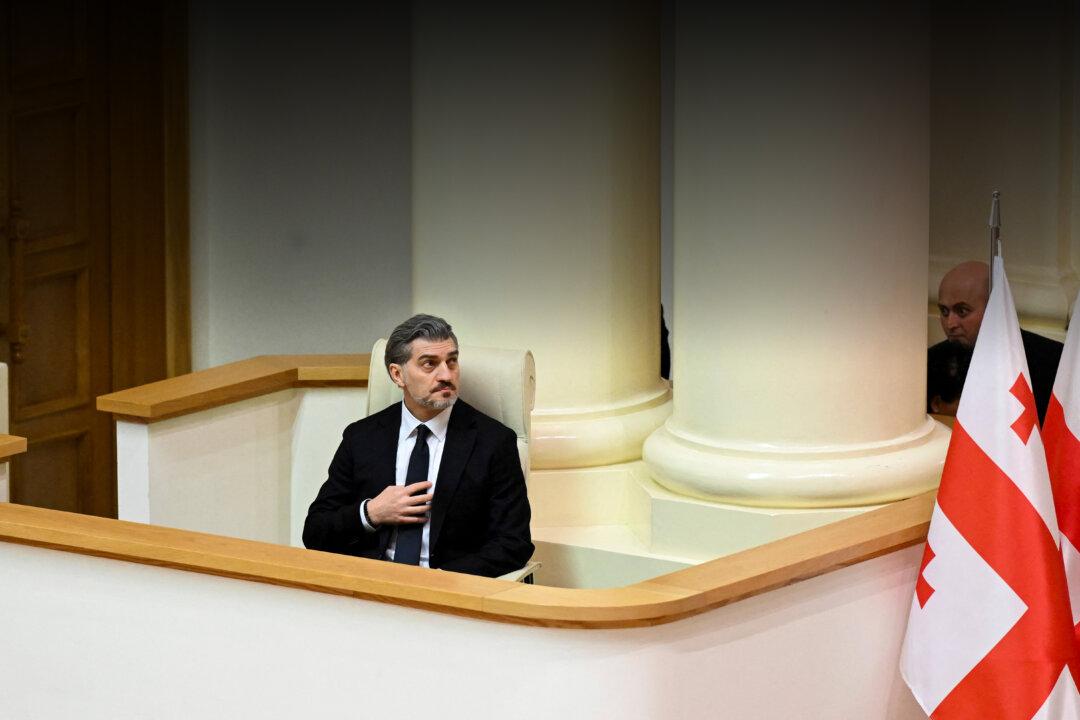While Mikheil Kavelashvili has been sworn in as president of Georgia, outgoing President Salome Zourabichvili has branded her successor illegitimate and is demanding new elections.
After being sworn in on Dec. 30, Kavelashvili, a former Manchester City footballer, said, “The Georgian people have always understood that peace is the main prerequisite for survival and development.”





